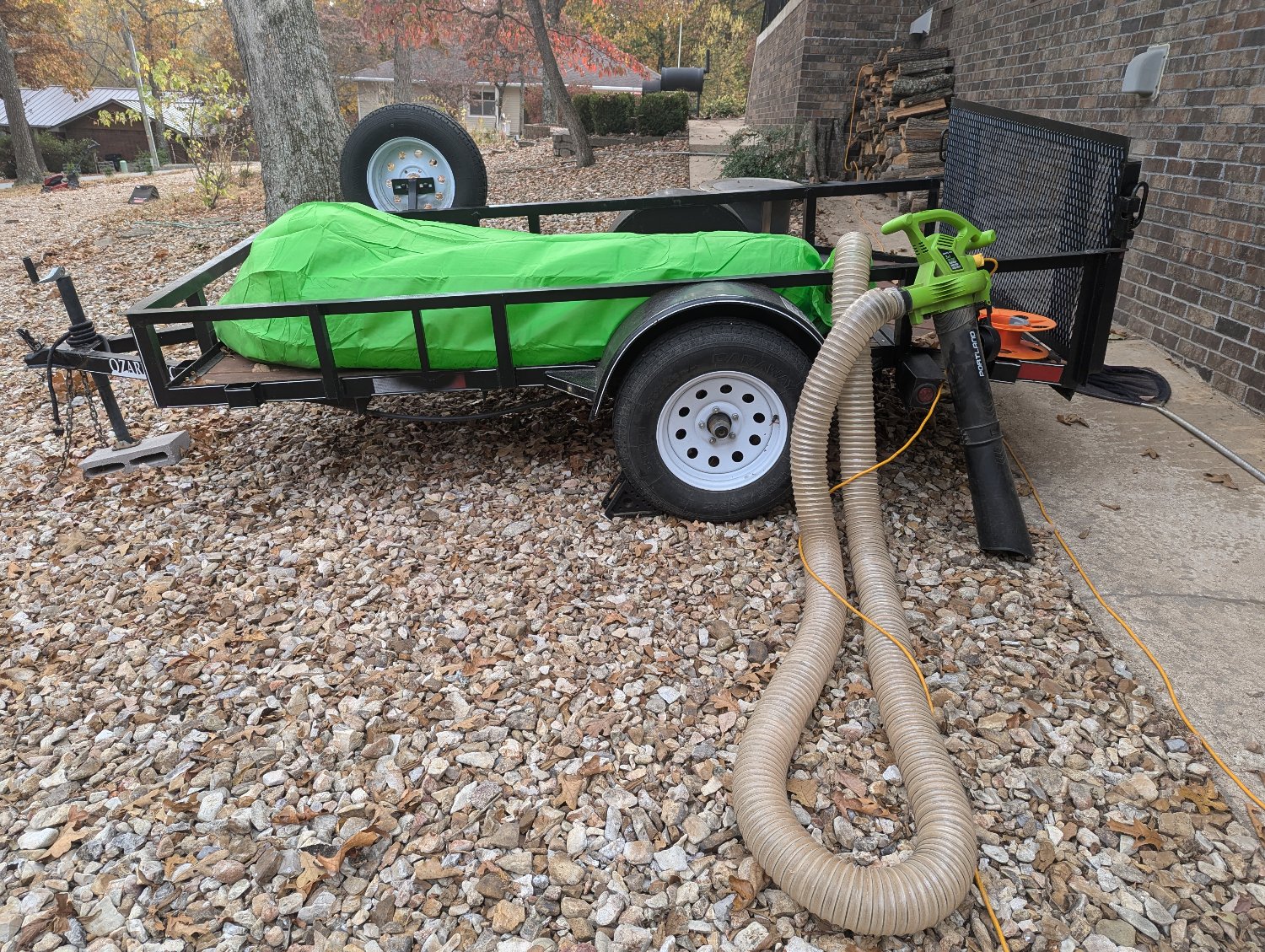Possum Lodge Skunk Works
Possum Lodge: The lodge from The Red Green Show. A handyman (or woman's) paradise where if it ain't broke, you're not trying and duct tape fixes everything.
Skunk Works: A pseudonym for Lockheed Martin's Advanced Development Program. Originally a nickname based on the "Skonk Oil Factory" from Lil' Abner, the Skunk Works is the [unofficial] name of Lockheed's research and development arm. The Skunk Works has been responsible for numerous technical innovations, especially pertaining to aeronautics.
What's the Possum Lodge Skunk Works?
This community is dedicated to the best examples of DIY engineering. To the handyman (or handywoman) in all of us. Maybe you're proud of your creation or maybe you're serving up a cautionary tale. Whether mechanical, electrical, or architectural, if you've built something to make your life easier, or just because you could, no matter if it belongs in the Skunk Works hall of fame or in an episode of the Red Green Show, we want to see it.
Rules
- Posts must be about a DIY project that is intended to serve a meaningful utility function. Posts asking for advice on a project are also allowed.
- DIY projects posted must be your own or credit must be given to the creator.
- Must represent a genuine attempt at success. This is not diWHY.
- Be excellent to each other. If you've never made a glaring mistake and felt like a complete idiot afterwards, this is probably not the place for you.
- No spam.
view the rest of the comments

Out of curiosity, what necessitates moving the leaf litter at all? Asking genuinely, not trying to rain on your triumph--very cool setup. Just want to mention that leaf litter provides several natural benefits as part of its ecosystem you may not be aware of:
-It provides shelter and food for ground insects that enrich soil and feed birds over winter
-Butterflies and especially moths (who also pollinate) rely on leaf litter to protect eggs from the elements over winter. We don't see nearly as many fireflies as we used to due to loss of their habitat when leaf litter is removed
-It acts as natural mulch, leaching nutrients and decomposing into additional top soil layers, as well as conserving water by moisture retention
-Energy/fuel is expended to collect and move the leaf litter, on top of negating all the above
I'd love to know if there's a unique circumstance in your situation that requires the use of collection and burning rather than natural decomp, I'm certainly open to learning something new.
Good question and all valid points.
There's a few reasons for removing the leaves. One being pest control. Another being that they're a fire hazard (especially relevant since we're currently under one of the worst droughts in decades).
There's also the matter of keeping peace with my neighbors who won't appreciate all my leaves blowing into their yards or potentially plugging up their drainage culverts and flooding their basements, which around here is a very real possibility.
Burning them is just a matter of convenience but now you've made me think I could actually spread them in the woods behind the house and maybe that would be a better way of handling them.
Reverse your sucker and suck them out of the bag and spread around the trees. Assuming the bag is porous enough to do this.
Just avoid making a mulch volcano around the base of the tree. That would be bad for the tree.